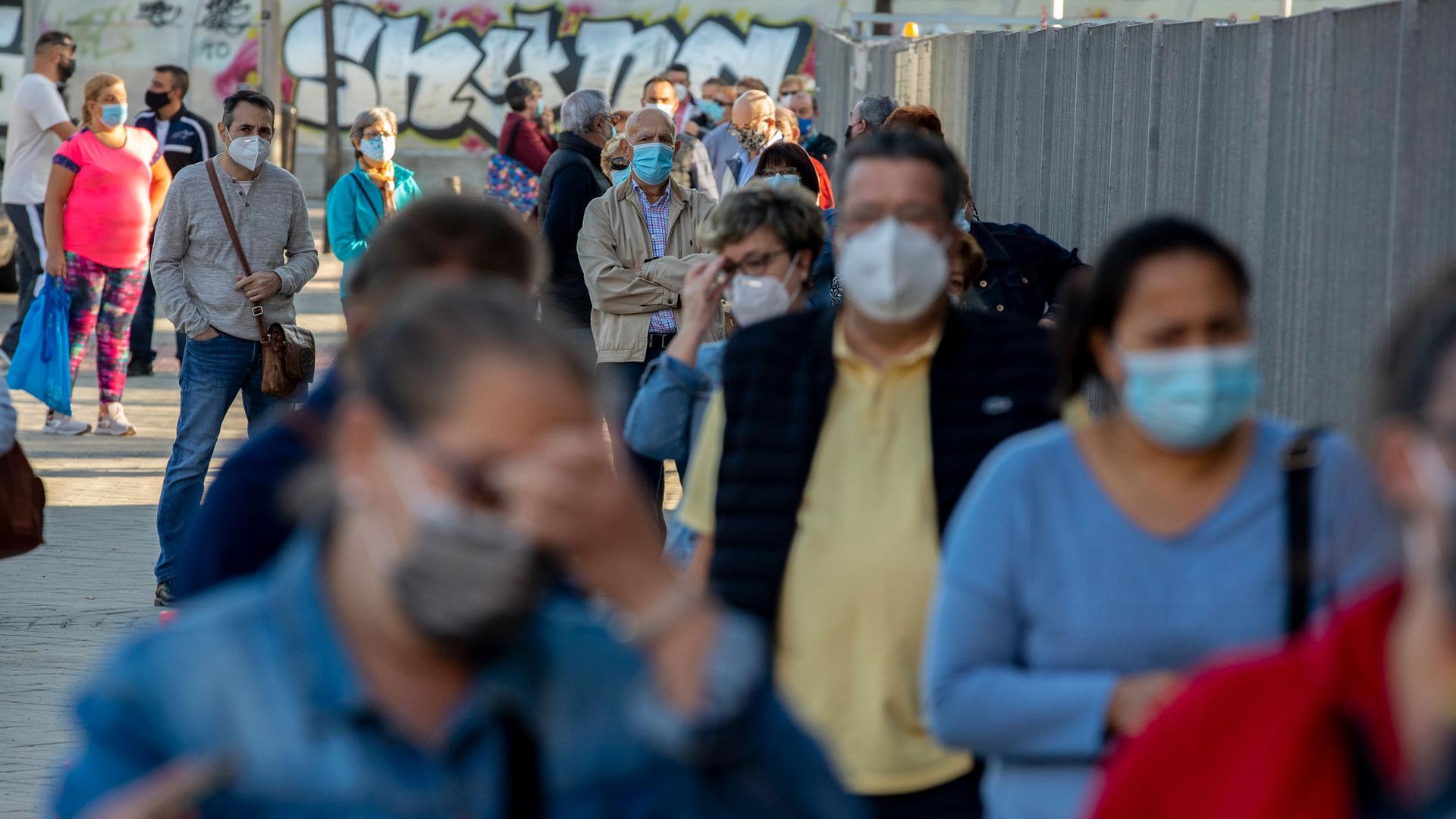Discussion: What’s driving the latest coronavirus surges?
People wait in line to take a rapid antigen test for COVID-19 in the southern neighborhood of Vallecas in Madrid, Spain, Oct. 7, 2020.
Around the world, several nations that knocked down the coronavirus earlier in the year are seeing spikes in case numbers, causing some to impose new lockdowns measures.
Health authorities in Belgium said Wednesday, bars, dance clubs and cafeterias will have to close for a month with officials in Scotland and Romania announcing similar measures.
In France, more than 7,500 patients were treated in the hospital for COVID-19, marking a three-months high. In the Middle East, Iranian state TV announced Wednesday more than 230 deaths in the country is the highest number of daily deaths from the coronavirus. Infections in Brazil are approaching 5 million cases, and India registered more than 72,000 new coronavirus cases in 24 hours over Tuesday and Wednesday, driving the country’s total to 6.75 million.
And the United States, continues to lead the world in deaths from the coronavirus with more than 210,000.
Related discussion: Will people accept a COVID-19 vaccine?
Many health officials around the world are working to contain the second wave of the disease and avoid the hospital systems from being overwhelmed.
What are the forces driving the latest wave of surges? Are hospitals and public health officials better prepared to handle them today than they were in the early days of COVID-19?
As part of our regular series of conversations on the coronavirus, The World’s Elana Gordon moderated a discussion with Yonatan Grad, assistant professor in the department of immunology and infectious diseases at Harvard’s T.H. Chan School of Public Health.
Grad addressed what we might be able to expect in the next stage of the pandemic.
This conversation is presented jointly with The Forum at Harvard’s T.H. Chan School of Public Health.
Our coverage reaches millions each week, but only a small fraction of listeners contribute to sustain our program. We still need 224 more people to donate $100 or $10/monthly to unlock our $67,000 match. Will you help us get there today?
